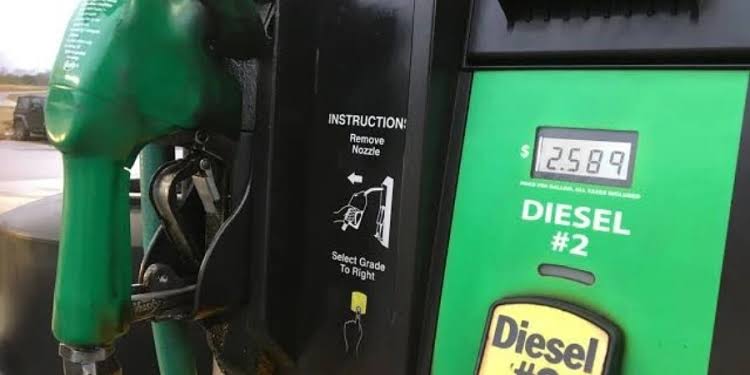Business
Diesel prices soar over 37% in one year (What it means)

Nigerian consumers are grappling with a significant surge in diesel prices, with the average retail cost rising by a staggering 37.76% year-on-year, according to data from the National Bureau of Statistics (NBS).
The NBS report, titled “Automotive Gas Oil (Diesel Price Watch (December 2023))”, reveals that in December 2023, a litre of diesel at retail outlets averaged N1126.69, compared to N817.86 in the same month a year prior. This sharp increase, exceeding 37%, paints a worrisome picture for businesses and individuals reliant on diesel for transportation and power generation.
NBS said: “The average retail price of Automotive Gas Oil (Diesel) paid by consumers increased by 37.76% on a year-on-year basis from a lower cost of N817.86 per litre recorded in the corresponding month of last year to a higher cost of N1126.69 per litre in December 2023.”
The document further noted that on a month-on-month basis, an increase of 6.74% was recorded from N1055.57 in the preceding month of November 2023 to an average of N1126.69 in December 2023.
In the period under review, said NBS, looking at the variations in the State prices, the top three States with the highest average price of the product, include Sokoto State (N1300.00), Kebbi/Yobe State (N1250.00) and Jigawa State (N1229.09).
NBS added that the top three lowest prices were recorded in the following States namely, Rivers State (N897.89), Bayelsa State (N935.00) and Bauchi State (N985.00).
READ ALSO:Two die clearing diesel reservoir in Kano
The data explained that the Zonal representation of the average price of Automotive Gas Oil (Diesel) shows that the North West Zone has the highest price of N1227.31 while the South South Zone has the lowest price of N1039.90 when compared with other Zones.
What it means:
• The rising cost of diesel could lead to higher transportation costs, impacting the prices of goods and services across the board. This could fuel inflation and put further strain on household budgets.
• Industries reliant on diesel, such as manufacturing and agriculture, could also face challenges due to increased operating costs. This could potentially lead to job losses and disruptions in supply chains.
Reasons for the Increase:
• The global rise in oil prices is a major factor contributing to the increase in diesel costs in Nigeria. This is compounded by the depreciation of the naira, which makes imported fuels more expensive.
• Additionally, the removal of fuel subsidies by the Nigerian government has further contributed to the price hike.
Looking Ahead:
• The future trajectory of diesel prices remains uncertain. Continued global oil price volatility and the naira’s exchange rate will be key determinants.
• The Nigerian government’s policies, such as potential reintroduction of fuel subsidies or measures to boost domestic fuel production, could also play a role in shaping future price trends.
Join the conversation
Support Ripples Nigeria, hold up solutions journalism
Balanced, fearless journalism driven by data comes at huge financial costs.
As a media platform, we hold leadership accountable and will not trade the right to press freedom and free speech for a piece of cake.
If you like what we do, and are ready to uphold solutions journalism, kindly donate to the Ripples Nigeria cause.
Your support would help to ensure that citizens and institutions continue to have free access to credible and reliable information for societal development.
























